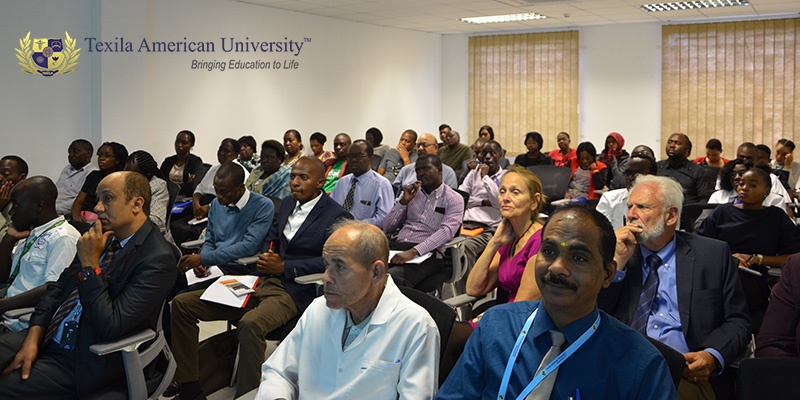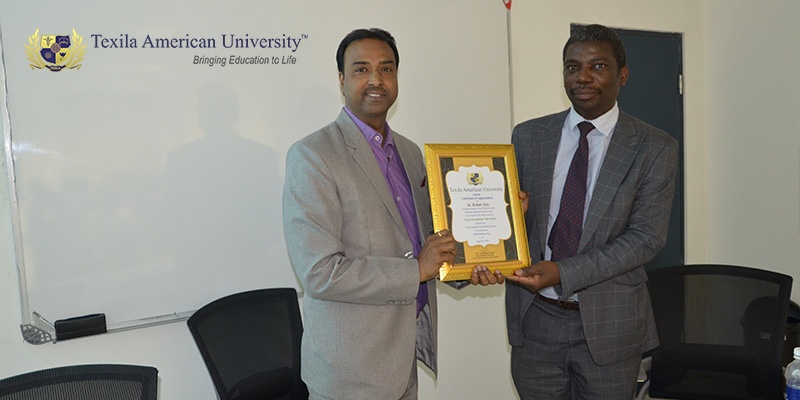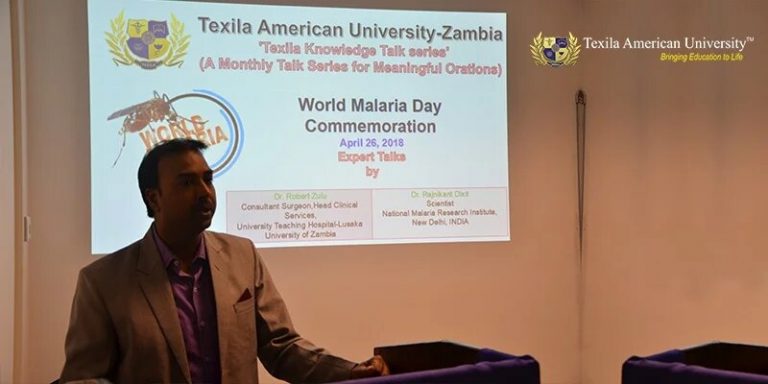|
Tired of Reading? Please listen to the blog
|
Awareness plays an important role in disease control. Lack of adequate knowledge of a disease can lead to low detection rates, interruption in treatment, discrimination, and stigma. As a medical college, at Texila American University, Zambia (TAU) we believe that initiatives have to be taken to spread awareness. Texila Knowledge Talk Series is such an initiative – to raise awareness about common diseases (prevention and control) and challenges in healthcare among different stakeholders and common people.
April 25th is celebrated as World Malaria Day. To commemorate the day, on April 26th, at TAU we organized the second event of Texila Knowledge Talk Series and were privileged to have Dr. Robert Zulu, Consultant Surgeon, Head Clinical Services at University Teaching Hospital, Lusaka, to share his knowledge and expertise on Malaria. He addressed a full-house on the state of Malaria in Zambia and around the world and what can be done to eradicate it.

Why is there a need for a Talk Series on malaria?
A talk series can play an important part in developing community support to bring about changes in critical issues. The fight against Malaria in Zambia is real, and a talk-series/discussion can draw attention to issues that are relevant to the lives of community members and malaria is one such issue.
We also aim to encourage students to study medicine and other healthcare disciplines and help government and other concerned organization in their crusade against malaria and make Zambia malaria free.
Dr. Robert Zulu on Malaria – Key highlights
It was a privilege to have Dr. Robert Zulu address the group on April 26th at TAU’s Lusaka campus. Some of the key highlighting of his session included:
• Goal and efforts made towards a malaria-free Zambia by 2030
• The burden of malaria on Zambia – statistics and reports
• Vectors responsible for malaria
• Malaria Cycle
• Results of different interventions and measures
• Challenges Ahead

With concerted global efforts, the number of deaths due to malaria have halved in the last decade, but there are still approximately 219 million cases of malaria every year, resulting in more than half a million deaths (Report, WHO). The need of the hour is to have a multi-pronged and integrated intervention not just for the prevention of Malaria, but also its diagnosis and treatment.
For more on our talk series, keep following this section.











